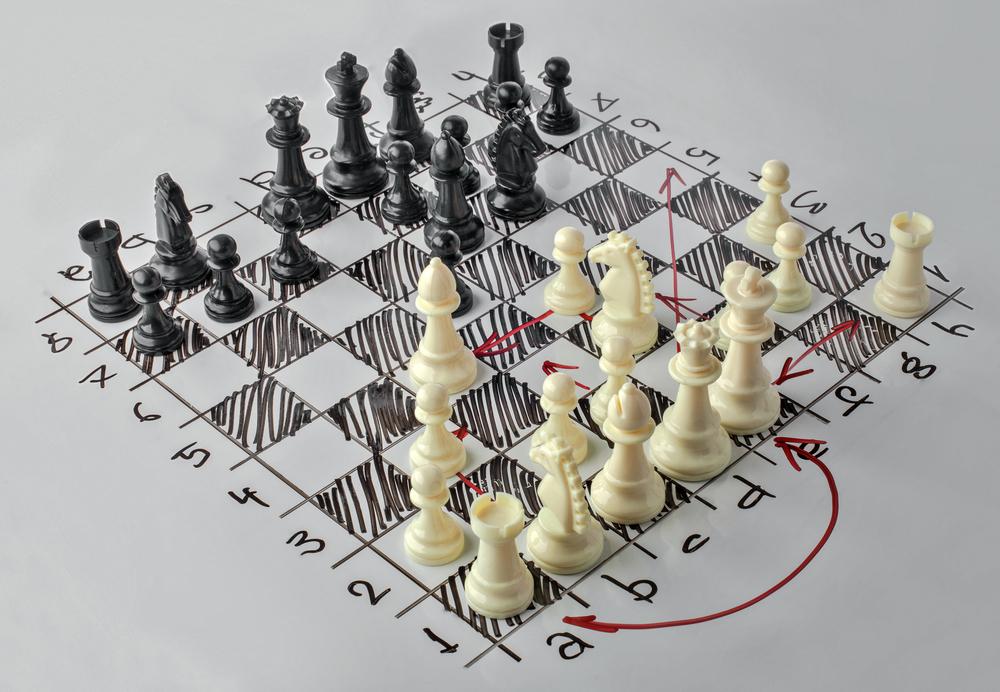
The Anatomy Of A Chess Brilliancy
In round four of the recently-concluded 2015 Qatar Masters, I found myself across the board from a rather obscure individual known as Vladimir Kramnik (yes, I am being sarcastic). As the chief arbiter made the usual pre-game announcements, I recalled a memorable experience that I had almost a decade earlier, during Kramnik's notorious 2006 world championship match against Veselin Topalov.
I assume that most readers have at least a nodding acquaintance with the egregious scandal that turned the long-awaited match into a whirlwind of accusations and verbal jousting. If not, the Wikipedia article on the match provides an excellent (and factually accurate) summary of the affair.
If any silver lining can be found in this situation, it is that the match went on despite the off-the-board dueling. After the final two games ended peacefully, the score was tied at 6-6 and a fascinating rapid tiebreak was on the cards. And what a tiebreak it was: Kramnik drew first blood in the second game, but Topalov maintained his composure and struck right back in the next encounter.
Then, in game four, Kramnik turned in a masterful positional peformance to clinch the title.
Like millions of chess fans across the world, I was following the tiebreak with bated breath. When Topalov captured on c5, the suspense became nearly unbearable.
Would Kramnik find Rb7+? Does he see it? What is going to happen?
He saw it, of course. But it was the scene on the live video feed that really stuck with me for a long time. Upon stopping the clock, a clearly distraught Topalov grabbed his blazer and quickly exited the stage.
Kramnik, in a rare cathartic display, raised his hands in triumph. He was quickly approached by his manager Carsten Hensel. They too exited the stage, leaving nothing but two black swivel chairs and a wooden chess board. The soldiers had finally left the battlefield.

I cannot quite verbalize why this final scene left such a great impression on me. Perhaps it had something to do with the realization that — scandal and politics aside — I had just witnessed two kings of the game fight an epic battle. Most players remember the match for altogether different reasons, but I truly gained an appreciation for the level of virtuosity that top players display in each and every game.
In his encounter with me, Kramnik took this virtuosity to a whole new level. I would like to analyze his brilliant performance as deeply as possible, with an eye toward how he managed to navigate such an incredibly complex position and turn in a near-flawless performance.

Make no mistake: I put every ounce of effort into this game, and I believe that my efforts were not totally in vain. I do not view this game as a defeat, but rather as an unforgettable learning experience that will stay with me for the rest of my career. Hopefully, you will benefit from and enjoy this experience as much as I have!
As usual, we will break the game down into three stages, and pay special attention to the moments in which Kramnik truly demonstrated his brilliance.
Opening:
Take note: White is not objectively better, but Kramnik has obtained exactly the kind of position that he was looking for. However, to maintain the initiative, White will have to demonstrate machine-like precision.
Middlegame:
Exquisite! In analyzing the game with a computer, I often found that the machine failed to perceive the strength of Kramnik's moves until it reached a very high depth, testifying to the fact that humans still know a thing or two about the royal game! Black is still in the game, but all of the momentum is on White's side. And Kramnik finishes off the game with characteristic precision and panache.
Finale:
I will confess that I do not usually derive pleasure from losses, but in this case, I left the board with a smile. For three meager rating points, I received the kind of master class that very few are capable of giving. No matter whether you are a fellow grandmaster or a beginner, I hope that you, too, have found something useful in Kramnik's performance.






